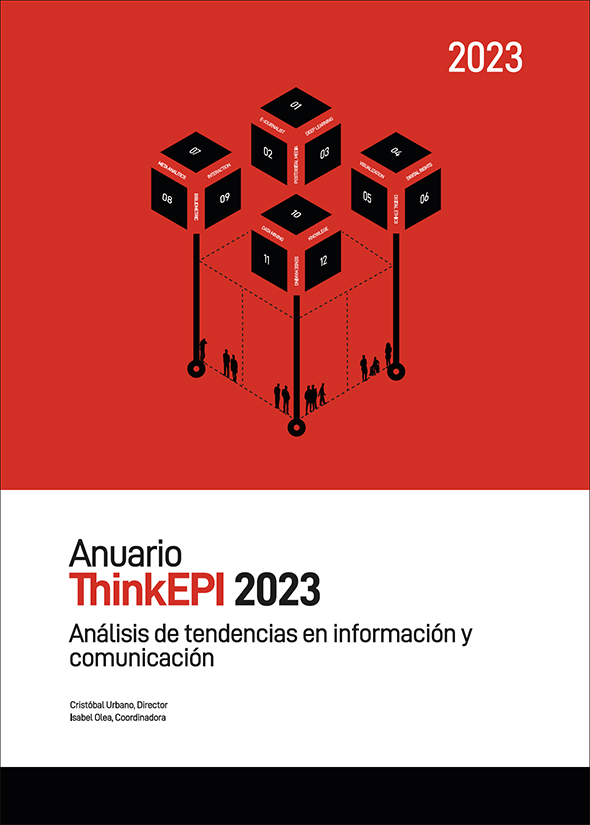From Twitter to X. The risk of reliance on private sources for research
DOI:
https://doi.org/10.3145/thinkepi.2023.e17a46Keywords:
Twitter, API, Research, Source dependence, DataAbstract
Academic research is deeply rooted in its social, economic, political, and cultural contexts. At a time of expansion and diversification of the digital sphere, social platforms, especially Twitter, are key tools for communication research. The evolution of the Twitter API has significantly facilitated the collection of big data for communication research. However, the recent limitation of free access to this tool poses, with the change in X’s corporate policies, important challenges that require rethinking dependence on private sources as well as the development of adaptive research strategies.Downloads
References
Campos-Domínguez, Eva (2017). “Twitter y la comunicación política”. El profesional de la información, v. 26, n. 5, pp. 785-793. https://doi.org/10.3145/epi.2017.sep.01
Campos-Domínguez, Eva; Díez-Garrido, María (2023). “Digital transparency and political communication”. Profesional de la información, v. 32, n. 1, e320104. https://doi.org/10.3145/epi.2023.ene.04
Casero-Ripollés, Andreu (2018). “Research on political information and social media: Key points and challenges for the future”. El profesional de la información, v. 27, n. 5, pp. 964-974. https://doi.org/10.3145/epi.2018.sep.01
Congosto, Mariluz (2023). t-hoarder_R. https://github.com/congosto/t-hoarder_R
Congosto, Mariluz; Basanta-Val, Pablo; Sánchez-Fernández, Luis (2017). “T-hoarder: A framework to process Twitter data streams”. Journal of network and computer applications, v. 83, pp. 28-39. https://doi.org/10.1016/j.jnca.2017.01.029
Favaretto, Madalena; De-Clercq, Eva; Caplan, Artur; Elger, Bernice-Simone (2023). “United in big data? Exploring scholars’ opinions on academic-industry partnership and the use of corporate data in digital behavioral research”. PLoS one, v. 18, n. 1, e0280542. https://doi.org/10.1371/journal.pone.0280542
Fersini, Elisabetta; Nozza, Debora; Rosso, Paolo (2018). “Overview of the Evalita 2018 task on automatic misogyny identification (AMI)”. In: Proceedings of the sixth evaluation campaign of natural language processing and speech tools for Italian. Final workshop (Evalita 2018). https://ceur-ws.org/Vol-2263/paper009.pdf
Hurst, Samia; Mauron, Alex (2008). “A question of method. The ethics of managing conflicts of interest”. EMBO reports, v. 9, pp. 119-123. https://doi.org/10.1038/sj.embor.2008.4
Martínez-Rolán, Xabier; Piñeiro-Otero, Teresa; Castro-Souto, Laura; Padilla-Castillo, Graciela; Barrientos, Almudena; Sánchez-Vázquez, Clara (2021). Mulleres pontevedresas na rede II. Análise do discurso de odio e otras violencias contra xornalistas e políticas. https://micromachismos.webs.uvigo.es/proxecto2021/
Martínez-Rolán, Xabier; Piñeiro-Otero, Teresa (2017). “Lazos invisibles de la comunicación política. Comunidades de partidos políticos en Twitter en unas elecciones municipales”. El profesional de la información, v. 26, n. 5, pp. 859-870. https://doi.org/10.3145/epi.2017.sep.08
Pfeffer, Jürgen; Matter, Daniel; Jaidka, Kokil; Varol, Onur; Mashhadi, Afra; Lasser, Jana; Assenmacher, Dennis; Wu, Siqu; Yang, Diy; Branthner, Cornelia; Romero, Daniel; Otterbacher, Jahna; Schwemmer, Carsten; Joseph, Kenneth; Garcia-García, David; Morstatter, Fred (2023). “Just another day on Twitter: A complete 24 hours of Twitter Data”. arXiv:2301.11429v2 [cs.SI], 11 Apr. https://doi.org/10.48550/arXiv.2301.11429
Twitter (2019). “Twitter es la red donde la información política tiene mayor relevancia”. Twitter blog, 9 abril. https://bit.ly/3RMCUhH
Downloads
Published
How to Cite
Dimensions


